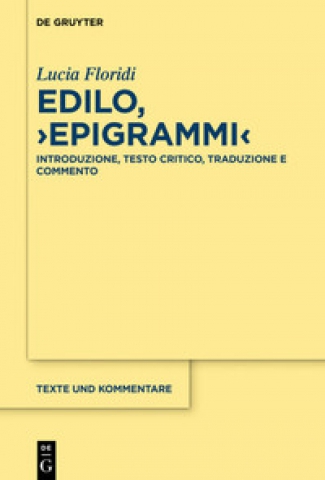
Bryn Mawr Classical Review
BMCR 2021.01.06 Edilo, Epigrammi: introduzione, traduzione, testo critico e commento
Lucia Floridi, Edilo, Epigrammi: introduzione, traduzione, testo critico e commento. Berlin; Boston: De Gruyter, 2020. Pp. viii, 250. ISBN 9783110629620 $126.99.
Review by Taylor Coughlan, University of Pittsburgh (tsc43@pitt.edu)
Since the publication of the Milan Papyrus nearly two decades ago, Greek epigram has become an increasingly active field of study. Scholarly interest in the genre has manifested itself, in part, in a raft of new critical editions and commentaries on individual authors that have reassessed and supplemented the foundational work of D. L. Page and A. F. S. Gow, such as Antipater of Sidon, Asclepiades, Crinagoras, Dioscorides, and Nicarchos, to name only a selection.[1] In the book under review, Floridi has produced an excellent text and commentary on the early Hellenistic epigrammatist Hedylus. Though less well-known than his better attested contemporaries Posidippus and Asclepiades, Hedylus was, as Floridi demonstrates, an innovative contributor to the development of the genre. (Re)reading these poems with Floridi as a guide, one will come to appreciate Hedylus as a critical voice in contemporary aesthetic debates, a deft manipulator of generic expectations, and a trailblazer in satiric epigram, among other facets of the poet’s talents.
The volume consists of an introduction, text with accompanying translation, a detailed commentary, two appendices, a bibliography, three indices (verborum, locorum, and nominum et rerum notabilium), and a map of Cilicia Trachea and Cyprus.
